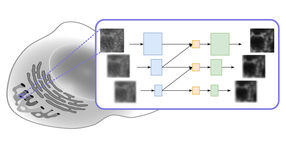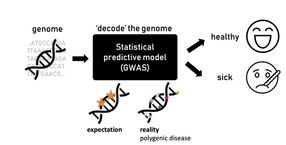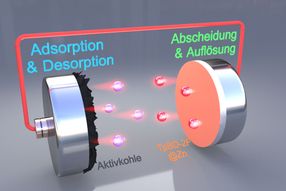Newly discovered molecule may offer hope for immune disorders
A new research discovery published in the issue of the Journal of Leukocyte Biology may open the door to new therapies that help treat immune disorders or curb runaway inflammation. Specifically, scientists have discovered a molecule that can induce cell death (apoptosis) in a key type of immune cell (dendritic cells). With this understanding, it may be possible to develop new therapies that essentially shut down dendritic cell activity, and thereby reducing an immune reaction.
"We hope that our findings provide better understanding of immune regulation, which might give new insights into identifying new targets for immunotherapies,'" said Young Chul Sung, Ph.D., a researcher involved in the work from the Division of Integrative Bioscience and Biotechnology at the Pohang University of Science and Technology in Pohang, Korea.
To make this discovery, scientists used two groups of mice. One group was bred to lack the molecule believed to induce dendritic cell apoptosis and the second were normal (wild-type). Dendritic cells, obtained from the spleens of both groups of mice, were activated in vivo and in vitro, and apoptosis was determined by flow cytometry. Significantly lower apoptosis was found in the mice lacking the molecule necessary to induce apoptosis, when compared to their counterparts.
"Dendritic cells are the essential inducers of immune responses and sense the need to activate many other immune cascades, but sometimes these cells get it wrong," said John Wherry, Ph.D., Deputy Editor of the Journal of Leukocyte Biology. "Understanding how one might selectively induce cell death in dendritic cells may reveal novel opportunities to eliminate these key orchestrators of immune responses in pathogenic settings such as autoimmunity or inflammatory diseases."
Original publication
Other news from the department science
Most read news
More news from our other portals
See the theme worlds for related content
Topic World Cell Analysis
Cell analyse advanced method allows us to explore and understand cells in their many facets. From single cell analysis to flow cytometry and imaging technology, cell analysis provides us with valuable insights into the structure, function and interaction of cells. Whether in medicine, biological research or pharmacology, cell analysis is revolutionizing our understanding of disease, development and treatment options.

Topic World Cell Analysis
Cell analyse advanced method allows us to explore and understand cells in their many facets. From single cell analysis to flow cytometry and imaging technology, cell analysis provides us with valuable insights into the structure, function and interaction of cells. Whether in medicine, biological research or pharmacology, cell analysis is revolutionizing our understanding of disease, development and treatment options.























































